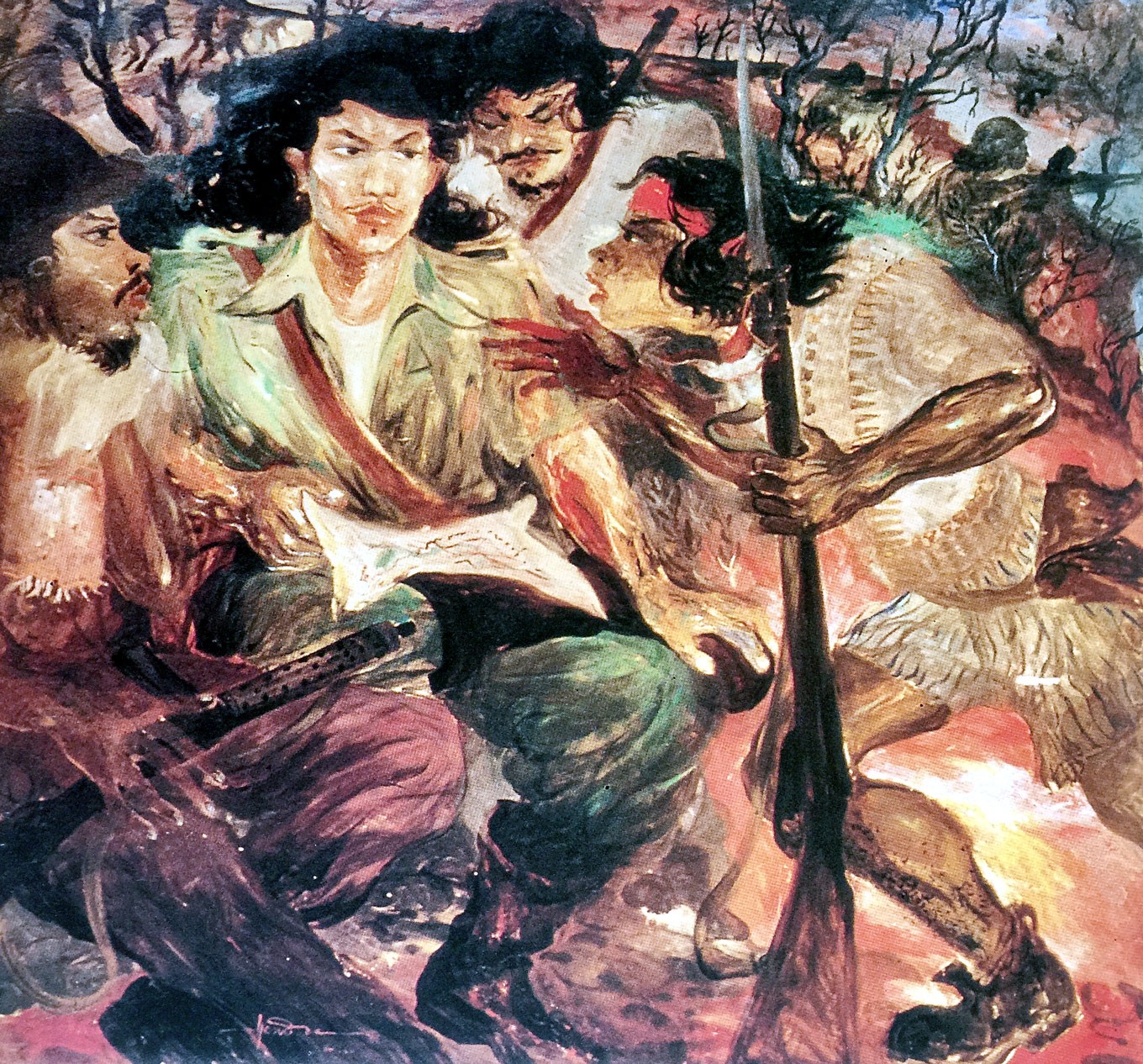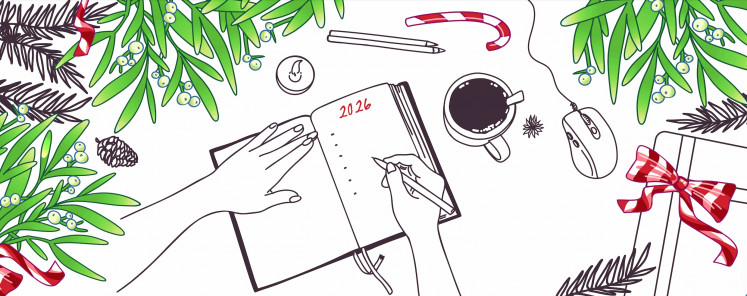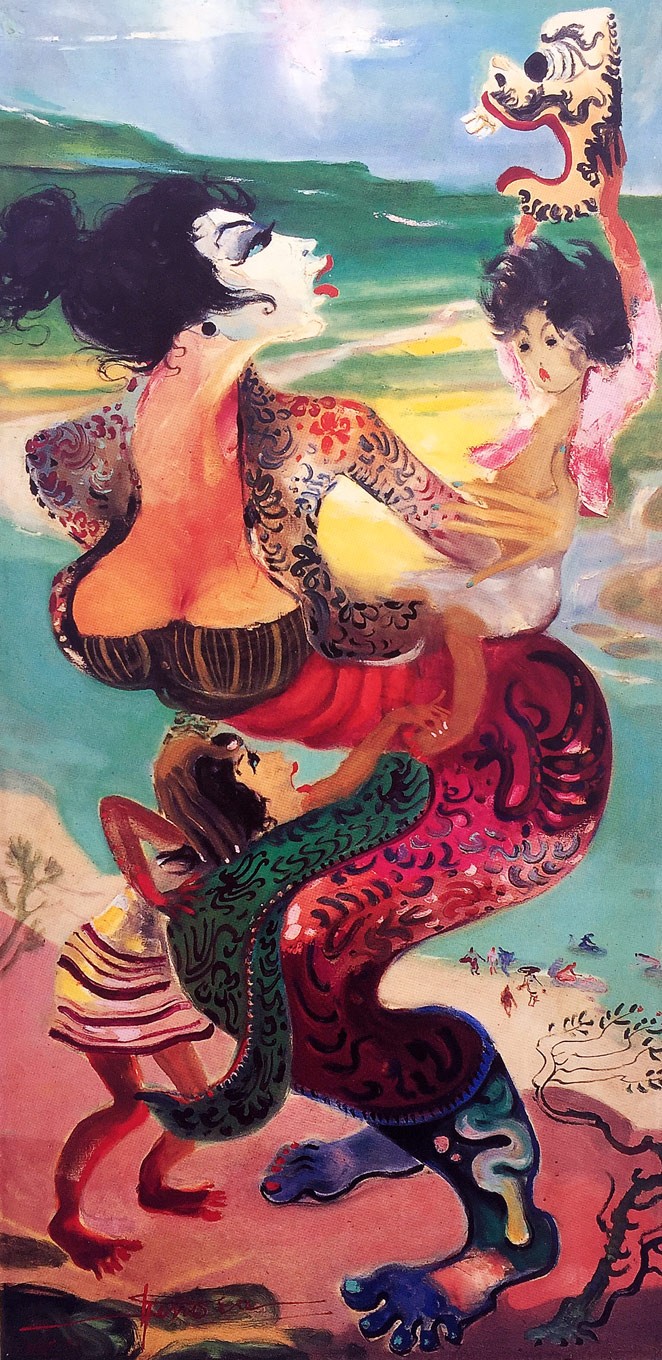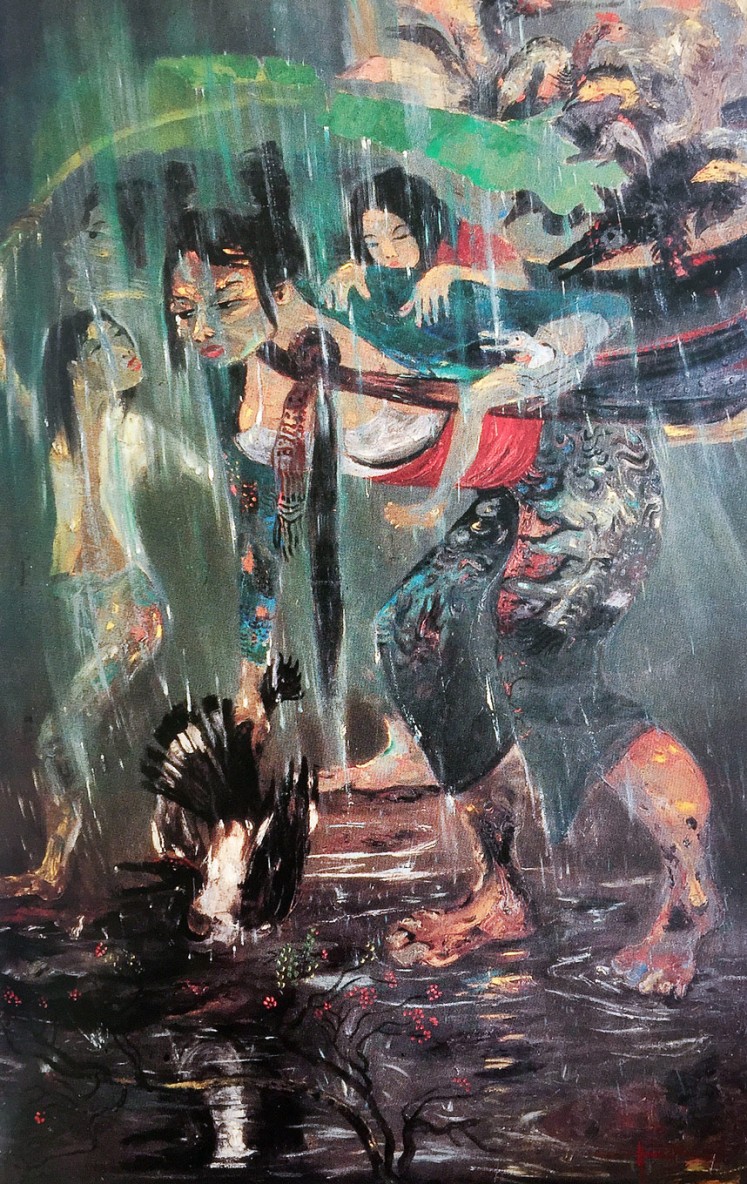Popular Reads
Top Results
Can't find what you're looking for?
View all search resultsPopular Reads
Top Results
Can't find what you're looking for?
View all search resultsHendra Gunawan's centenary, a painter's great fortitude
His extraordinary paintings are currently priced high on the market.
Change text size
Gift Premium Articles
to Anyone
I
n 1979, renowned painter Hendra Gunawan, (June 11, 1918 – July 17, 1983) held a solo exhibition at Taman Ismail Marzuki, Jakarta.
The special display drew the attention of observers and received mass media praise. Oddly, though, almost none of his paintings sold on the occasion.
Many collectors were reportedly reluctant to buy because Hendra was a former political detainee because of his affiliation with the People’s Cultural Institute (Lekra), an organization under the banned Indonesia Communist Party (PKI), which made Hendra feel despondent.
After the show, he took four of his artworks to Jusuf Wanandi, a politician known as a true collector.
At first, Jusuf declined to buy the large pieces, but Hendra insisted he purchase all of them, offering a reasonable price. On humanitarian grounds, Jusuf bought them to adorn his house and office.
Unexpectedly, 20 years later Hendra’s paintings had increased in price by 500 times the sum Jusuf had paid. In 2016, one of Hendra’s paintings sold at Sotheby’s in Hong Kong for HK$33.2 million (US$4.2 million) — the price had rocketed 1,500-fold from the rate set by Hendra in 1979.
But Jusuf was not surprised by this because in his view, Hendra was indeed a respectable artist, on par with Raden Saleh, Affandi, Sudjojono and Lee Man Fong.
“He was an outstanding maestro,” said Jusuf.
Berebut Topeng (Struggling for a Mask), 1973. (JP/Agus Dermawan T.)Hendra Gunawan was actually one of Indonesia’s greatest artists and those lauding him will present the fact that he was most capable of portraying Indonesian populist feelings in all aspects.
With the themes, tales and colors of his paintings mainly representing the characteristics of populism, curators from various countries became interested in featuring his works at international exhibitions in America, Europe and Australia.
“Hendra’s paintings are appealing. Ordinary people in rural areas were the subject of his creative works. In fact, Hendra was from a wealthy Sundanese noble family. It’s unique,” said Prof. Astri Wright, an art historian from America.
More than just his exceptional works, Hendra’s biography is also worth examining as a historical accentuation. Hendra was an artist imbued with nationalist spirit, with Indonesia as his most treasured motherland. But as everything started from the 1930s in the Dutch East Indies era, he frequently came across major obstacles.
He experienced hard times as a wanderer living with a beggar and a village adventurer doing puppet performances for money. He was also fighting for independence and painting amid showers of bullets.
His active and flexible attitude enabled him to maintain close ties with whomever he found, from homeless people under bridges, artists, farmers, fishermen and freedom fighters to top-ranking statesmen such as Adam Malik, Chaerul Saleh, Ali Sastroamidjojo and even president Sukarno.
Hendra was also known as an intellectual with a broad knowledge of art, culture, national history and sociopolitical sciences. His brilliant thoughts, presented to a big discussion forum at Gadjah Mada University, Yogyakarta, in 1956, are fondly remembered by many academics.
Hendra’s artistic and intellectual reputation as well as his flexibility were much needed by political organizations in Indonesia, which dragged him into the political arena and made him a member of Lekra, the cultural wing of the PKI, although he claimed not to have been engaged in any political activity.
Berkah dari Langit (A Blessing form the Sky), 1977. (JP/Agus Dermawan T.)“I just used the arena to spread the concept of populist humanism in art,” said Hendra. Nonetheless, in the wake of the Sept. 30, 1965 incident, he was arrested and imprisoned. After being confined for 13 years as a political detainee without any trial, he was released in 1978.
In 1978, he joined a display at Taman Ismail Marzuki along with his peers, Affandi, Barli Sasmitawinata, Wahdi and Sudarso, who in the 1930s formed the Group of Five. In 1979 he launched a solo exhibition in the same place. Living in poverty as an ex-detainee, he moved to Bali. In 1982, he held a solo display at the Art Center, Denpasar, during which he granted two big paintings to the Bali regional administration.
“This is my first gift to the Indonesian government. Now I’m working on large paintings to be granted to a number of provinces in Indonesia,” said Hendra at the time, as if ignoring the fact that the government he was presenting with his works had jailed him without mercy.
In Ubud, Bali, Hendra suffered from some ailments he had acquired during his time in prison. On July 17, 1983 he passed away at Sanglah Hospital, Denpasar, and was later buried in Bandung, his birthplace. Decades after his demise, Hendra and his works continue to be analyzed, including the forging of his highly valued paintings.
Hendra survived his ordeals with remarkable power of endurance and fortitude, for which he was posthumously awarded the Bintang Budaya Parama Dharma cultural honor by President Joko “Jokowi” Widodo in 2015.
June 11 was Hendra Gunawan’s centenary. His centennial celebration will be held at Museum Ciputra in early August, with a display of his best paintings. Several books will also be launched, including Hendra Gunawan - A Great Modern Indonesian Painter and Surga Kemelut Pelukis Hendra: Dari Pengantin Revolusi ke Terali Besi (The Crisis of Painter Hendra: From Revolution to Prison).













